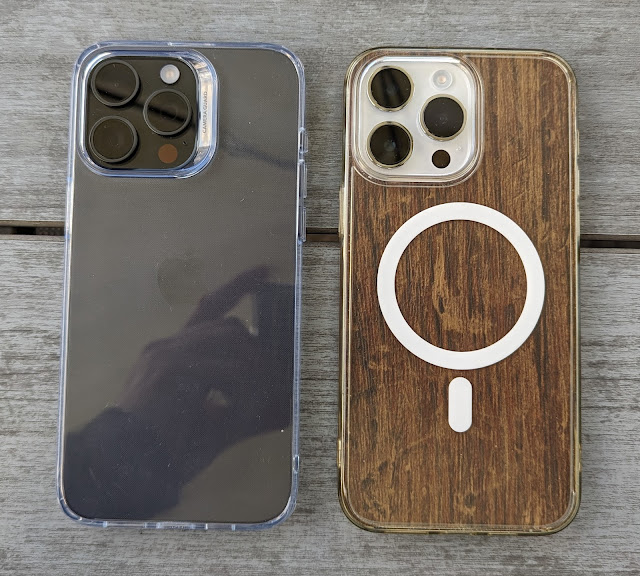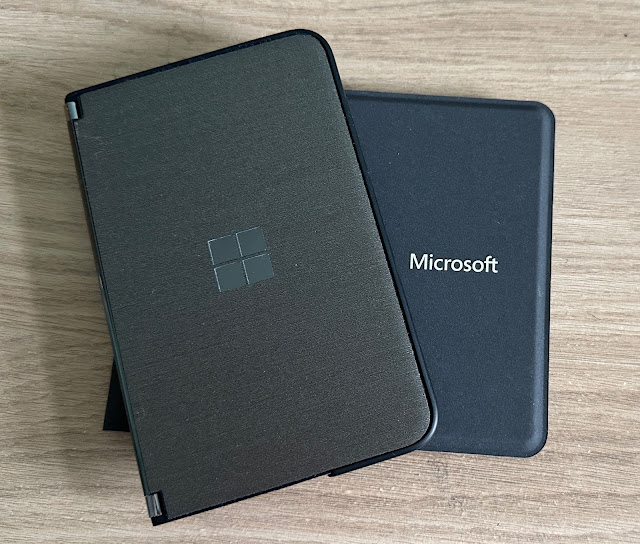I said Qi (wireless) charging was the future in January 2013, a decade ago. And it still is!
Just over a decade ago, writing for AAWP, I declared that Qi (wireless) charging was the future. And I'm convinced it still is, even if less than 10% of phone users know about it or use it. They're the ones missing out.
My friend David Gilson did a post a few months before, in 2012, highlighting the physics behind Qi, and that's a good primer to how it all works. In the intervening decade we've seen:
- standardisation of coil sizes
- higher supported charging power
- protocols for how a phone and Qi pad work out what power to use
- pads with multiple coils, so that two devices can be charged at once - or one, but positioning isn't as important
- circular magnetic alignment rings (Apple's MagSafe) to ensure that both devices are always perfectly aligned, for maximum efficiency
The upshot is the same, whether in 2013 or 2023, mind you. And as a data point, I've only plugged my main smartphone to a charging cable about twice in eight years. 99.9% of my phone charging has been wireless.
When in bed, or in the office, or in the car, I put my phone down on an appropriate Qi pad and it just starts charging. I don't even think about it. It's where my phone resides until I pick it up, and as a result, it's trickle charging at 10W or so for much of the day. So my phone is always charged up - at least, more so than if not on the pads - and I never, ever have to worry about running out of phone juice by the end of a day.
(I tend to use phones with good battery life anyway - currently the iPhone 14 Pro Max - so I'm unlikely to physically run out of charge, but with Qi top-ups wherever I am, the phone very rarely even dips below 50%. Ever.)
Now, all this isn't to sound smug, but to wonder why more people don't use wireless charging. Most iPhones have it built-in. All Samsungs over about £500 have it too. Many Pixels have it. Top end Sony phones have Qi, and many Motos. The list goes on.
Yet most phone owners a) don't know if their phone has Qi charging, and b) even if they do, they don't use it. The number of times I've pointed out to my wife and daughter that their iPhones can charge wirelessly, to no avail. I even went as far as putting pads by their beds - they went unused.
But even in 2023, when I put my phone down on a plastic Qi wireless charging pad, and I see the charging animation come on, I get a buzz. The buzz that comes from living in the future - this is the way charging should be. No wires, no jacks/connectors, no physical wear and tear.
(Apple was rumoured at one point to be thinking about a portless design, so users would perhaps have to charge wirelessly - now that would kickstart the Qi charging market!)
So... why aren't more people living in the wireless charging future?
Well, speed probably has something to do with it. The average phone user (not geeks like us?!) tends not to plan their charging quite as precisely, so they wait until they're heading out and their battery is on 10% before thinking 'maybe I should charge this', at which point speed is of the essence. 10W Qi is obviously outmatched by (say) 30W quick charging - and the user is then out the door faster. (I'd retort with 'you should charge more regularly and not let your phone get that low in the first place!')
Then there's the other crutch of the regular phone user. Even when doing the aforementioned emergency charge, they want to use the phone at the same time. Because they're addicted etc. When charging via a cable, you can just hold the phone and use it as normal. Whereas it's almost out of action lying on a Qi charging pad (though see here for an oddball solution that's surprisingly effective).
More geeky downsides are that Qi wireless charging can never be as efficient as wired charging, so there's some extra heat generated and energy lost. Extra heat may accelerate battery degradation, too. A small worry, though I've been OK over the last half decade.
I contend that the advantages and sheer, unadulterated convenience of Qi wireless charging (especially with Apple's auto-centering ring of magnets, now copied by some Android phones and case makers, and to be included in the next Qi official standard) outweighs the disadvantages. And after all, if you're in a hurry then you can plug most phones in. Having the option of Qi for day to day ad-hoc charging doesn't preclude fast wired charging when needed.
Comments welcome - do you live in a Qi world, like me?
PS. Apple's MagSafe Qi pad is £36 here. If you just want a cheap but reliable Qi charger then start with this, from Anker.
PPS. If you like this feature and want to support my work then please do so here via PayPal. Thanks.




Comments
1. If you charge whilst asleep it does not apply
2. If you charge in the car and use the head unit to stay legal it does not apply
3. If you use Phone Link with your PC whilst at work or connected at home you do not have to pick up your phone. Or even have it in the same room.so, again, the argument doors not apply.